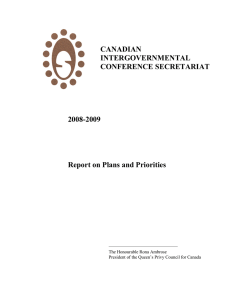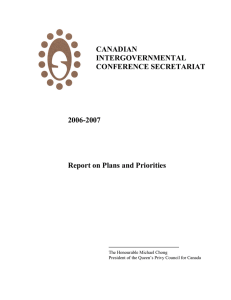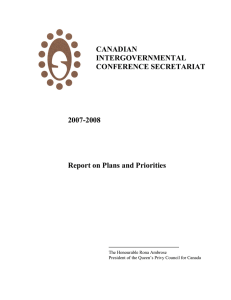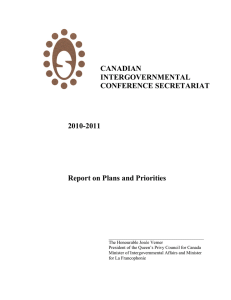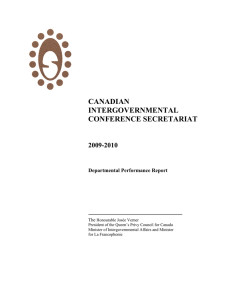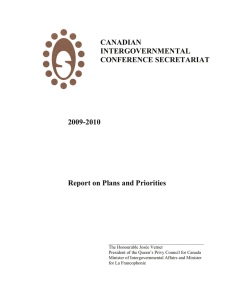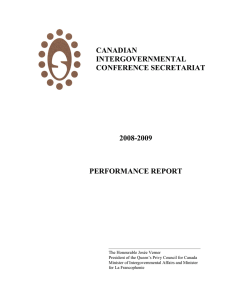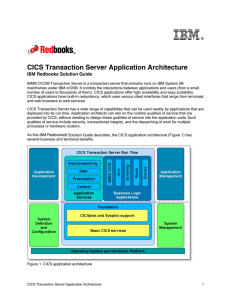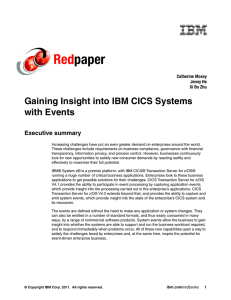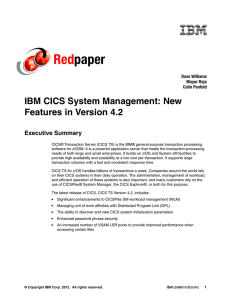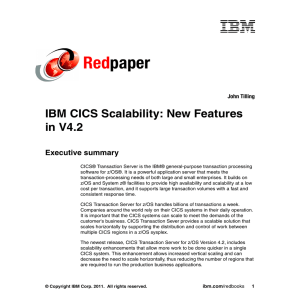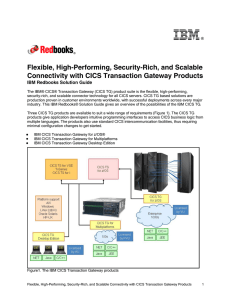Center for Information and Community Service records RG.27.05.01
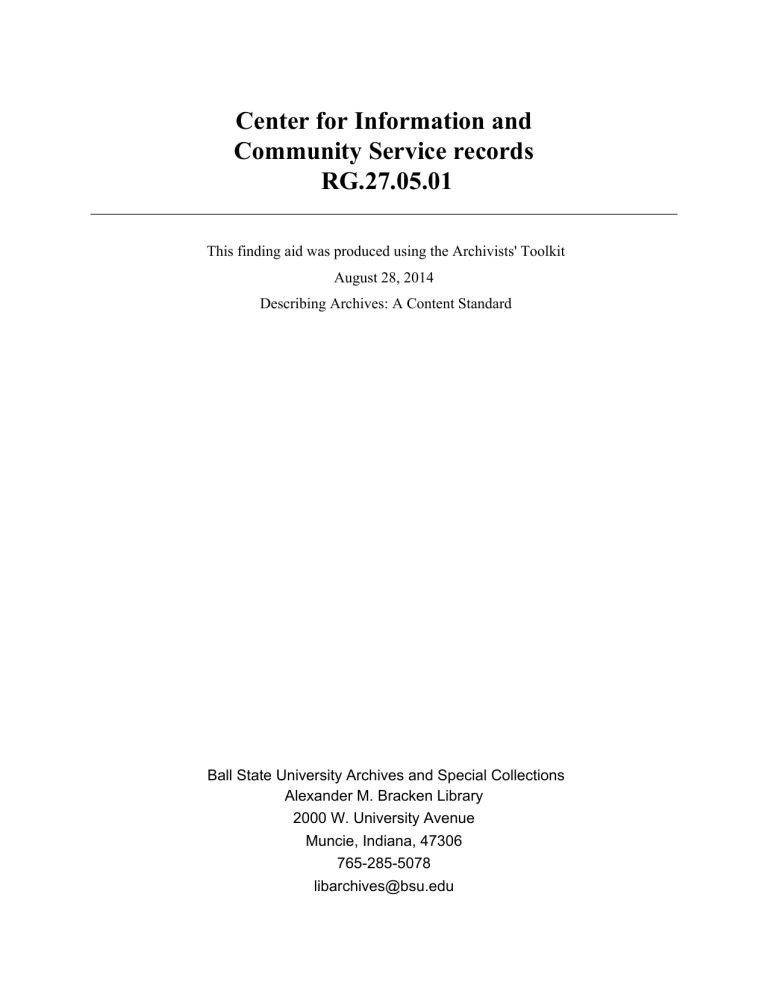
Center for Information and
Community Service records
RG.27.05.01
This finding aid was produced using the Archivists' Toolkit
August 28, 2014
Describing Archives: A Content Standard
Ball State University Archives and Special Collections
Alexander M. Bracken Library
2000 W. University Avenue
Muncie, Indiana, 47306
765-285-5078 libarchives@bsu.edu
Center for Information and Community Service records RG.27.05.01
Table of Contents
- Page 2 -
Center for Information and Community Service records RG.27.05.01
Summary Information
Repository
Title
Date
Extent
Language
Language of Materials
Text [Box]
Text [Box]
Ball State University Archives and Special Collections
Center for Information and Communication Service records
1984-2010
0.5 Cubic feet 2 Boxes
2
1
English
Materials in English.
Preferred Citation
Center for Information and Communication Service records, Archives and Special Collections, Ball State
University Libraries
- Page 3 -
Center for Information and Community Service records RG.27.05.01
Biographical Note / Historical Note / Administrative History
The idea for the Center, with its M.S. in Information & Communication Sciences degree, was formalized after extended campus discussion and cooperation between colleges and departments during the 1984
– 85 academic year. In early 1985, the legislature and the Indiana Commission for Higher Education provided both approvals and funding for the new academic entity and a building. Provost James Koch recruited Ray L. Steele as the founding director in early 1985. May 8, 1986, marked the official opening of the Center for Information & Communication Sciences at Ball State University. Five-hundred corporate, community, and academic guests heard the opening address by Arno Penzias, Nobel Laureate and vice-president of Bell Laboratories. Four months later, 34 students began pursuing the Master of
Science degree in Information and Communication Sciences offered by CICS. The Center initially served an independent, interdisciplinary academic unit reporting directly to the Provost. The University Senate legitimized the unit and its status in January of 1986, and the new M.S. in ICS curriculum was approved.
Departments directly working with the Center included Management (College of Business); Speech
Communication; Computer Science, Journalism, and Telecommunications (College of Sciences and
Humanities). In addition, a number of units such as Architecture, History, Music, Marketing, Practical and Applied Arts, Teachers College, and others were actively involved in a less formal manner. "Our goal is to turn out problem-solvers," said Ray Steele, CICS director. CICS’ first graduates found positions in business, communications, and education in a variety of technical and non-technical roles. To ensure that students get essential hands-on experience in addition to a sound economic base, CICS, through its service mission, is involved with providing satellite events for the campus and community, faculty conferences and workshops on technology, and project design and development for the campus and other organizations. One example is the development of "Teaching Environment Model-Campus of the
Future" in 1988, a major partnership between AT&T and Ball State University that created an integrated voice-data-video network for faculty, staff, and student use. The project served to bolster the campus’ reputation as of one of the nation’s leading demonstration sites for technology in a university. After two years of struggling though the challenges of poor physical conditions, inadequate equipment, and no labs, in August, 1988, CICS moved into its new headquarters in the newly-completed Edmund F.
Ball Communications Building. This 2 specially designed Information Age facility enabled CICS to extend its academic program, house and equip its Applied Research Institute (created in 1987), conduct its teleconferencing and special programs mission, and display the most promising information age technologies. Under a new academic administration, a decision was made in November, 1988, to move the independent Center under a traditional college structure and the faculty and interdisciplinary
Center became a unit within the College of Sciences and Humanities. In 1996, CICS again found a new administrative home with the creation of the College of Communication, Information and Media. Since then, the Center has greatly expanded its research and development operations, creating, in addition to its
Applied Research Institute (1987), the Human Factors Institute for User-Centered Design, Development
& Deployment (HFI-UCD3), the Institute of Wireless Innovation, the Internetworking Academy, and the
Software Testing Institute (2001).
- Page 4 -
Center for Information and Community Service records RG.27.05.01
Scope and Contents
This collection includes mainly administrative records from the Center for Information and
Communication Services at Ball State University ranging from 1984-1992
Arrangement
This collection is arranged alphabetically.
Administrative Information
Publication Information
Ball State University Archives and Special Collections
Conditions Governing Access
This collection is open for research.
Controlled Access Headings
Subject(s)
• Ball State University--Records and correspondence.
• Communication
- Page 5 -
Center for Information and Community Service records RG.27.05.01
Collection Inventory
Academic review, 1992
BA/ BS/ MA/ MS in information & telecommunication science records,
1985
Brochures for MS in Information and Communication Sciences, undated
Equipment correspondence, 1985
Industry fellows directory, undated
Information management program proposal, 1984
Infrastructure project records, 1985
Library holdings list, 1991
Memo regarding questionairre and recruitment opportunities, 1986
Planning documents, 1987-1988
Planning documents, 1988-1989
Box
1
1
1
1
1
1
1
1
1
1
1
Folder
1
2
8
9
6
7
10
11
3
4
5
- Page 6 -
Center for Information and Community Service records RG.27.05.01
Planning documents, 1989-1990
Proposal: College of Information Sciences, 1984
Proposal: College of Information Sciences, 1984 (continued)
Public opening ceremony, 1986
Progress report, 1986
Resumes of graduates, 1987
Review of Existing Programs, 1992
Self-Study, 1986-1991
Teaching environment model of the campus of the future steering committee, 1987-1988
4
5
2
3
6
7
12
13
1
2
2
2
2
2
2
1
1
2
- Page 7 -
